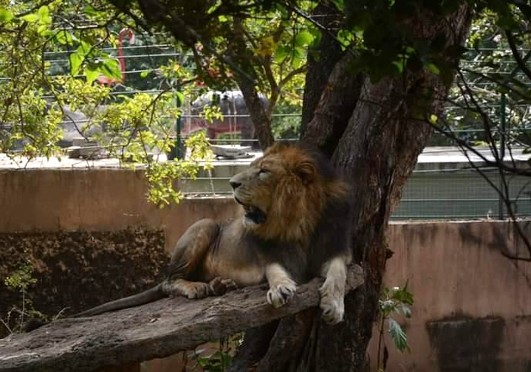Feed, money shortage fears force Sri Lanka zoos to consider selling, releasing animals
COLOMBO – Fears of animal feed shortage has led crisis-hit Sri Lanka’s key zoological gardens to consider selling and releasing animals to downsize animal population to a manageable level, a top Zoological Department official said on Thursday (2).
Amid the island nation’s worsening economic conditions, officials at Sri Lanka’s three main zoological gardens are preparing for possible feed shortages in the future because the sovereign debt-defaulted country does not have dollars to import such feeds.
The move comes as the South Indian island nation is expecting a possible food shortage in the coming months, and lack of US dollars have limited the Gotabaya Rajapaksa government from importing both essential food for people and feed for animals.
“There is no feed shortage yet. There are some due payments for some feed suppliers and that is the issue we have at the moment,” a senior Zoological Department official said, asking not to be named fearing possible consequences for revealing the real conditions.
“There are excess population of certain animals in the zoos including deer. And we are discussing with the Wildlife Department to see the possibilities of releasing some of those animals back to the wild. In that way we can reduce some of the expense,” the official said.
“Also there are some domestic animals such as rabbits and birds. If there are excessive population in those animals, we will take actions to sell them. Through this, we can reduce the number of animals and cost,” he added.
On Wednesday (June 1), Minister of Agriculture and Wildlife, Mahinda Amaraweera, said concerns over finding required feed for the animals in zoological gardens in the country have been raised amid current worsening economic conditions.
Sri Lanka has around 5,000 animals under three zoological gardens in Dehiwala, Pinnawala, and Safari Park in Hambantota.
The official said precautions are being taken to increase the income of the zoological gardens and reduce the costs at the moment including cultivating short term crops to add to the feed supply and purchasing plant based feed from third parties have also been considered.
“We need to prepare for the worst situation, considering the economic situation of the country,” the official said, dding that introducing local substitutes for import feeds was also being considered.
He also said they have not kept any unnecessary excessive amount of food in our stores.
The daily feed cost of all the zoological gardens in Sri Lanka is around Rs 250,000.
The official said other innovative options are also being considered to prevent starvations at the zoo.
“One is a foster care system. This was already there but not active. Since we already have inquiry from the interested parties, we will initiate the program in the next two days as a support for the system while letting the people interact with animals,” the official said.
“Also, we are open for donation. In special occasions people can do donations and the Department will issue a certificate for the donors, appreciating their contribution towards the wellbeing of the animals in the gardens. For the people who do not like to contribute in money, they can donate goods, foods and medicine.”
“A medicine shortage is also there, but none of the essential medicines are in shortage yet. We are securing several suppliers for other medicines as well,” he added.
-economynext.com


